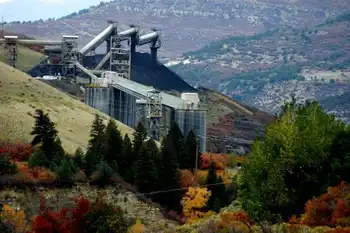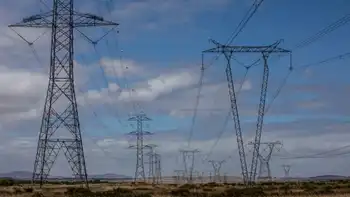OPG to close Pickering plant in 10 years
By CTV.ca
Substation Relay Protection Training
Our customized live online or in‑person group training can be delivered to your staff at your location.

- Live Online
- 12 hours Instructor-led
- Group Training Available
The Darlington refurbishment is good news in terms of jobs and in terms of Ontario's long-term electricity supply, said Energy Minister Brad Duguid, even though he could provide no details on the cost of the rebuild that is scheduled to start in 2016.
"There's still more work to be done to identify those numbers," Duguid told reporters.
"Our energy partners have looked at the various alternatives and their recommendations both in Pickering and Darlington is that this is the most cost-effective way to move forward to ensure that we produce this energy."
The New Democrats said either the government and Ontario Power Generation were guessing at the estimated cost of the nuclear refurbishment, or were withholding the figures from the public.
"Absolutely people should know what the costs are and what the estimates are," said NDP energy critic Peter Tabuns. "You don't make a multibillion-dollar decision based on a guess."
Greenpeace Canada applauded Ontario Power Generation for admitting it was too costly to keep the Pickering nuclear station open for more than another 10 years.
"For once OPG has told the truth about a project being uneconomic and saved the ratepayers millions if not billions of dollars," said Greenpeace energy watchdog Sean-Patrick Stensil.
"The ball is now in the (Ontario) government's court, and they need to give direction as to how Pickering will be replaced, and it can be replaced with green energy."
For a government that claims to be committed to green energy, the Liberals look like they're in the pockets of Canada's nuclear industry, said Tabuns.
"The idea that they're going to keep Pickering open and — without releasing any costs — continue their plan to refurbish Darlington says to me that they don't care about our industrial future and that they're captured by the nuclear industry," he said.
"Nuclear projects generally come in over schedule and over budget, and it would be shocking if Pickering was any different."
Ontario can't remain committed to nuclear energy and its Green Energy Act at the same time, especially with limited transmission space available on the province's power grid, said Stensil.
"Today's announcement shows the cost estimates used to justify this government's commitment to nuclear power are not credible at all, and we should be revisiting the 2006 commitment to keep nuclear at 50 per cent of the supply over the long term," he said.
"It'll bankrupt us if we implement that plan."
Ontario is still in talks with Atomic Energy of Canada Ltd. about building two new nuclear reactors so nuclear power continues to provide half of the province's electricity supply, said Duguid.
"As you know, the federal government decided to restructure AECL in the middle of our procurement process, which (added) a complication to the discussions," he said.
"We're still determined to move forward."
Meanwhile, Premier Dalton McGuinty said he wants the federal government to use its March budget to fund green energy projects in Ontario.
If Ottawa is going to provide financial support for unproven technologies to capture carbon emissions in Western Canada, it should also support green energy initiatives in Ontario that use proven technology like windmills and solar panels, said McGuinty.
"I'm not going to pass judgment on the merit of the science associated with carbon sequestration," he said. "But what I am going to say is if the federal government chooses to support that kind of research, we'd like them to provide comparable levels of financial support for things that we know in fact work."











